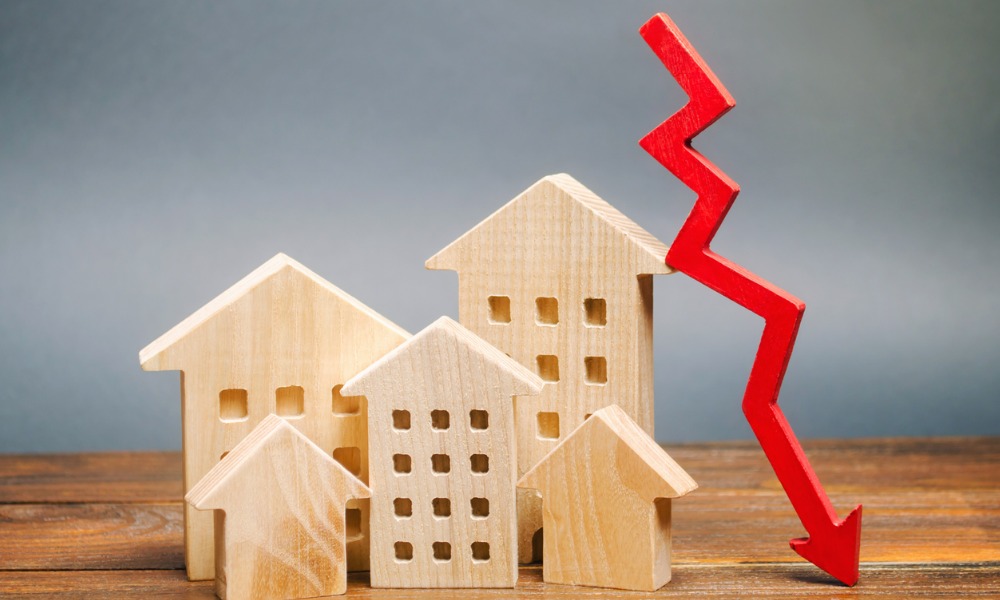Would falling house prices improve affordability for prospective buyers?

Economic consultancy Centre for Economics and Business Research (Cebr) said it expects house prices to fall by 4.5% on average next year, with a peak annual contraction of 6.2% expected in Q3 2023.
This fall in house prices, according to Cebr, will come amid sharp rises in mortgage rates, significant cost-of-living pressures, an impending recession, and anticipated resultant increases in unemployment.
“Since at least November of last year, Cebr has stressed that 2023 would be a challenging year for the UK housing market,” the London-based consultancy specialising in economic impact assessment, macroeconomic forecasting and thought leadership stated in a note. “While the recently announced energy price cap will bring some respite to households and businesses, these forces are nonetheless set to plague the economy for at least the next year.”
But now that a correction in the housing markets seems increasingly likely in the coming quarters, what does this imply for wealth inequality and affordability?
“Many of those eager but unable to reach the housing ladder – the so-called Generation Rent – may rejoice at the idea of falling prices, as some expect this to make housing more affordable and therefore reduce inequality,” Cebr said. “Yet, this will likely prove misguided as a contracting housing market will bring economic pain for everyone.”
Read more: Borrowing homebuyers are now slashing their budgets – research.
Cebr pointed out that property makes up an important proportion of national wealth and that the wealthiest households have their assets more diversified across classes other than property compared to those in middle deciles.
“Assuming for simplicity that property prices decline equally in proportional terms, this implies a harder relative hit to overall middle-class wealth than that of the wealthiest,” the consultancy said. “Meanwhile, those in the first decile will be plunged deeper into negative equity, widening the gap between richest and poorest. Moreover, higher outright ownership among the wealthiest households means that this group is less exposed to rising mortgage rates.”
As to whether falling house prices would improve affordability for prospective buyers at the bottom end of the distribution, Cebr said that within the current climate of rising mortgage rates and falling real incomes, worsening mortgage affordability makes this unlikely.
It added that given that, frequently, the biggest hurdle to get on to the housing ladder is the deposit, lenders’ tendency to push down loan-to-value ratios during periods of downturn means market accessibility at the lower ends is, in fact, set to worsen.
Read more: Mortgage shock comes for UK homebuyers.
“More broadly, falling house prices pose an economic threat regardless of one’s homeownership status,” Cebr said. “Dynamics in the housing market are important for the broader economy, as falling prices dampen confidence, reduce perceived wealth, and increase mortgage defaults, thereby leading to lower consumer spending, deeper recessions, and higher unemployment.
“In fact, the latest data from Cebr’s and YouGov’s Consumer Confidence Index show that, behind worries about energy prices, concerns about home values were the second-most important factor driving consumer confidence into overall negative territory for the first time since May 2020. The impact of consumer sentiment on household expenditure is particularly important in the UK, where consumption makes up more than 60% of GDP.”
Moreover, Cebr stressed that the anticipated fall in incomes and increase in unemployment would likely be felt more acutely by those without a direct stake in the housing market, as this group tends to be more vulnerable to economic downturns of any kind.
“Within the current climate, therefore, there seem to be few advantages to the anticipated fall in house prices,” it said. “In light of this, it may now be time to seriously consider reviving the stamp duty holiday – or even better yet, a complete overhaul of property taxation – in order to keep some life in the housing market and thus the UK economy more broadly.”



